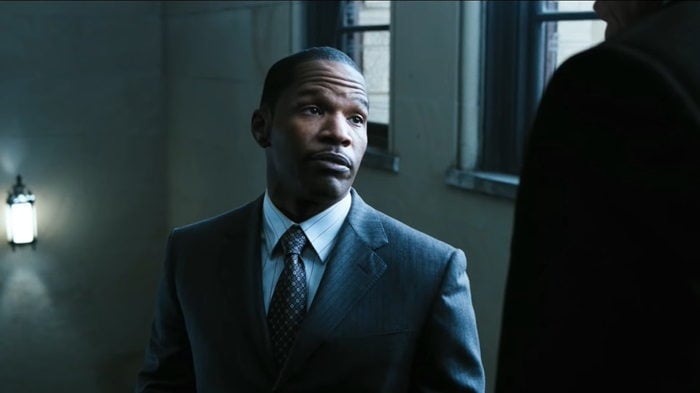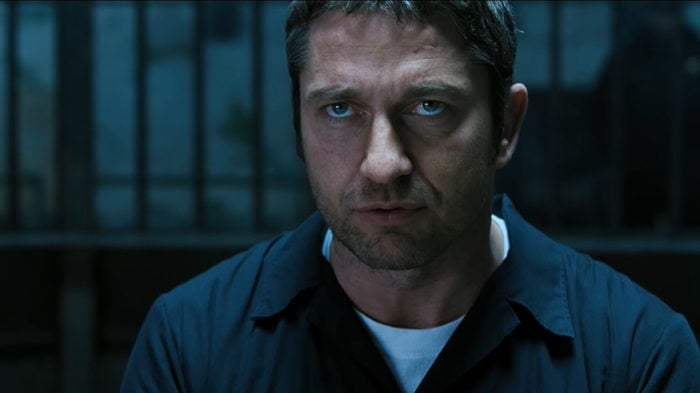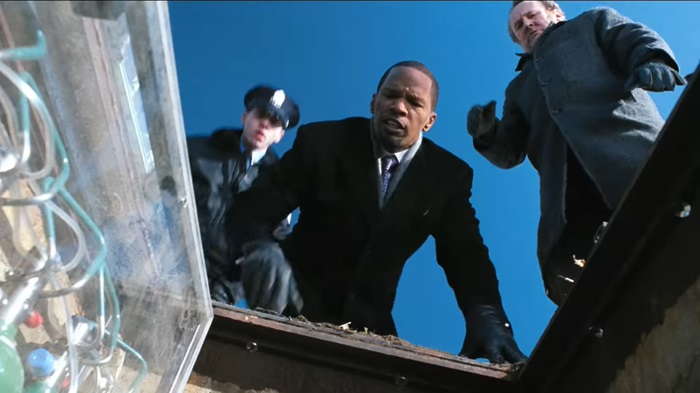Law Abiding Citizen, directed by F. Gary Gray and released in 2009, is a crime thriller that explores themes of justice, morality, and revenge. The film follows Clyde Shelton (played by Gerard Butler), a man seeking vengeance after the justice system fails to adequately punish those responsible for the murder of his family. The ending of Law Abiding Citizen is a complex and intense culmination of Clyde's meticulously planned acts of retribution, raising moral questions about the price of justice and the flaws within the legal system.
Plot Summary
Law Abiding Citizen opens with a brutal home invasion that results in the murders of Clyde Shelton's wife and daughter. The justice system, represented by District Attorney Nick Rice (played by Jamie Foxx), secures a plea deal for one of the perpetrators, Darby (played by Christian Stolte), in exchange for his testimony against his accomplice. This decision infuriates Clyde, setting the stage for a meticulously orchestrated plan of revenge that unfolds throughout the film.
Clyde's first act of retribution is a meticulously planned and gruesome attack on Darby, who has now been released on parole. The brutality of this act sets the tone for the film, establishing Clyde as a formidable adversary with a deep-seated vendetta against what he perceives as a broken and corrupt legal system.
As the story progresses, Clyde's acts of revenge escalate, targeting not only those directly responsible for his family's murder but also individuals within the justice system whom he sees as complicit in the flawed plea deal. The film raises moral and ethical questions as Clyde's actions blur the lines between right and wrong, justice and vengeance.

The climax of the movie occurs during the trial of Darby, where Clyde, who has been apprehended, represents himself. In a tense courtroom scene, Clyde reveals his master plan and forces Nick to choose between two explosive devices, one of which will kill either the judge or Nick's assistant. Nick reluctantly makes a choice, leading to a shocking and chaotic detonation that leaves the courtroom in chaos.
The aftermath of the courtroom explosion sets the stage for the film's resolution. Clyde is taken into custody, and Nick, now grappling with the consequences of his decisions and Clyde's relentless pursuit of justice, is determined to put an end to the escalating violence. However, Clyde has one last ace up his sleeve.

In prison, Clyde manages to continue his vendetta by remotely triggering a series of elaborate traps that target those he holds responsible for the perceived failures of the justice system. The traps are ingeniously designed to punish each individual in a manner reflecting the severity of their perceived injustices.
The Ending Explained
The ending of Law Abiding Citizen becomes a cat-and-mouse game between Clyde, who orchestrates his plan from behind bars, and Nick, who is determined to bring an end to the escalating violence. The film raises profound questions about the morality of Clyde's actions and the efficacy of a legal system that can be manipulated and exploited.
One of the key elements of the ending is the moral dilemma faced by Nick as he tries to outsmart Clyde and put an end to the carnage. Clyde's actions force Nick to confront the ethical implications of his decisions as a prosecutor and the flaws within the justice system. The film challenges the audience to consider whether Clyde's extreme methods are a justifiable response to systemic failures.
The escalating tension between Clyde and Nick reaches its peak as Clyde's final trap is set in motion, targeting the city's mayor and threatening mass casualties. Nick, desperate to prevent further bloodshed, realizes that he must confront Clyde directly and make a personal sacrifice to save innocent lives.
The final confrontation between Nick and Clyde occurs in the prison where Clyde is being held. The scene is charged with emotional intensity as the characters grapple with their conflicting ideals of justice. Clyde remains unyielding in his belief that the system must be purged, while Nick, faced with the prospect of losing everything, takes matters into his own hands.
The resolution of Law Abiding Citizen is a shocking and morally complex twist that challenges traditional notions of justice. In a surprising turn of events, Nick decides to take matters into his own hands and kill Clyde, preventing the final trap from being activated. This decision raises profound ethical questions about the price of justice and the lengths one is willing to go to maintain order.
The film's conclusion is marked by a sense of moral ambiguity. While Clyde's acts of revenge are portrayed as extreme and reprehensible, the ending leaves room for contemplation on the failures of the legal system and the complex interplay between justice and morality. The film doesn't provide a neat and tidy resolution but rather invites the audience to grapple with the consequences of the characters' actions and the systemic flaws that gave rise to the narrative's events.

In the aftermath of Clyde's death, the film ends with a sense of unease and lingering questions about the nature of justice. Nick, despite preventing further bloodshed, is left to contemplate the personal and societal costs of the choices he made. The movie's conclusion doesn't offer easy answers, leaving the audience with a sense of moral complexity and challenging them to reflect on the themes of the film long after the credits roll.
In summary, the ending of Law Abiding Citizen is a culmination of the film's exploration of justice, revenge, and the moral complexities of the legal system. The resolution is marked by shocking twists, moral dilemmas, and a sense of lingering unease. The film prompts viewers to question the boundaries between right and wrong, justice and vengeance, and the inherent flaws within the legal system. "Law Abiding Citizen" is a thought-provoking thriller that challenges conventional notions of morality and justice, leaving its audience with much to contemplate.






